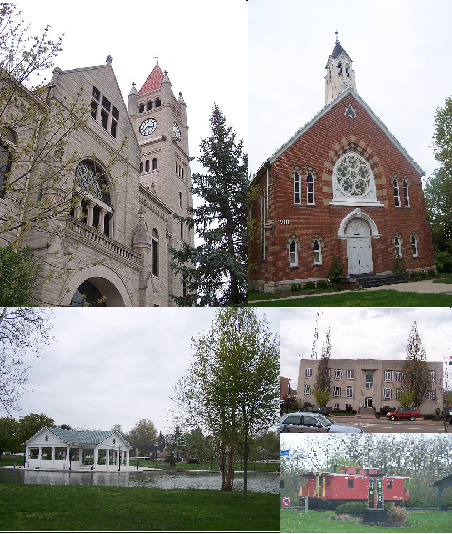My
scripture came from John 20:19-31
Think about it……Your best friend just got murdered -
executed, in fact. You could have helped him escape, but you ran instead.
You’re angry and disappointed, not only in yourself, but in your friend. He
said he could handle it. He said he was big enough to avoid it. He said he was
God. Or at least, that’s what you heard.
And you are scared. People know
who you are. You were inseparable for years. You witnessed his “crimes” and you
know you were an accomplice. You are thinking to yourself, “How am I going to
get out of this? How am I going to get out of town?” Your hopes have been
dashed and a once bright future is now very dark indeed.
Can you
picture this scene? ….I mean….here you are….The doors are locked.
The room is dim. There is a low murmur of voices in the background as you sit
in a corner and review for the hundredth time the contradictions, the
njustices, and your own role in the horrible death of your best friend.
I am pretty certain that we have all been sitting in that
spot, in that room at some point in our life. We have let ourselves down, we
have failed our friends, and Lord knows we have betrayed our Master with much
wickedness. We see our own sins, we know our own hearts and we become very good
at beating up on ourselves. My imagination has quite a lot to work with as I
envision that room in John 20:19-31
on the evening of the day the disciples discovered that not only was their
Master dead, but his body was gone.
Read
John 20:19-31
But now….I stand here and I wonder, “What do you see in that
room? What do you see after betrayal, after disappointment, after sin? What do
you see “after”?
I’ll tell you what I see. I immediately see “Fear.” It is very obvious and real –
the disciples are scared of the Jews, according to John and the doors are
locked. After disappointment and betrayal, there is fear. Fear is something that we have all had to
deal with. It was Dave Barry, that great humorist, who said, "All of us
are born with a set of instinctive fears - of falling, of the dark, of
lobsters, of falling on lobsters in the dark, or speaking before a Rotary Club,
and of the words "Some Assembly Required." 1
When I was a child, my best friends and I thought that it
was great fun to scare each other. One of us would be screaming hysterically in
fear, and the others would be howling in laughter. My favorite story is about my friend Carol
who was terrified of frogs. One night
going from her house to my house a humongous frog jumped right on top of her
foot. She went to pieces and when my
parents finally found me I was literally laying on the porch laughing til I
cried. The only thing that saved me from
being punished was I did not do this.
But You know….real fear is not at all funny. “The oldest and
strongest emotion of mankind is fear,” said H.P. Lovecraft. Fear makes you do things you would normally
not do. On the third Sunday when I come out here after men’s breakfast…. while
studying here in my office I lock all the doors. Why?
Well my first Sunday to do this I heard something outside my office
door. Those of you who have been around know that this building has some
unusual noises. And most of the time, I keep the doors locked when I’m here by
myself, because, well…I’m kind of jumpy. Blame it on my childhood! So when I heard the noise, I did what I
normally do – I got up to go look. There was no one there. But as soon as I sat
down again, I heard the noise again – a bit louder. This time I was convinced
that someone was sneaking up on me. So I
did what any woman would do – I grabbed my weapon from my bag….. (my trusty
leatherman) and went to convince the intruder that he needed to leave. But
there was no one there - there was nothing there, in fact. Fear makes you do
crazy things sometimes.
I learned recently that fear even determines the price of
gold. There is a factor in gold options known as the “Fear Index,” invented by
James Turk in the 1980’s. “When the Fear Index is rising (which occurs when
money is flowing into gold, pushing up its exchange rate and raising the market
value of U.S. gold reserves), it’s usually because people are worried about the
dollar or the health of the U.S. banking system and are looking for alternative
stores of value.”
Here were the disciples of Jesus sitting in failure,
betrayal, confusion, disappointment, shame, and guilt. How sad that the
disciples had misunderstood Jesus’ teachings, had misinterpreted his miracles,
and had even been misdirected by their own culture as they followed Jesus. No
wonder they were afraid. Just where does
FEAR come from? It actually is self-generated based on our interpretations of
what we see. A simple acrostic for fear is this:
False
Evidence
Appearing
Real.
Fear was real for them and it is real for us. And most of
the time it comes because we do not understand what we are seeing. They are
human. They did not understand. They were afraid of being locked up and
crucified. They were afraid of the Jews.
It really seems in life that the more you resist fear, and try to
directly overcome it, the stronger it gets. The more attention you give it, the
more it grows.” But not only do I see
fear in that room, after fear I see forgiveness.
I see forgiveness demonstrated by the first words out of
Jesus’ mouth when he entered the room. “Peace
be with you!” He did not come in all angry saying “Where were you guys?” Nor did he say…. “How
could you have let me down?” But, “Peace be with you” - forgiveness from the
start. How often do we fail to keep forgiveness by bringing up the past with
someone? How many times doe we make sure the other party knows how little we
thi
nk of them, how much it hurt?
Dave McFadden tells about the time a mother ran into the
bedroom when she heard her seven-year-old son scream. She found his
two-year-old sister pulling his hair. She gently released the little girl’s
grip and said comfortingly to the boy, "There, there. She didn’t mean it.
She doesn’t know that hurts." He nodded his acknowledgement, and she left the
room. As she started down the hall the little girl screamed. Rushing back in,
she asked, "What happened?" The little boy replied, "She knows
now."
I see forgiveness demonstrated by the assignment he
immediately gave them. “I am sending you as the Father sent me.” He immediately
indicated his trust in them by giving them an assignment, a task, a command
even, to carry on his work. “It reflects the principle that the authority of
the one who is sent is the same as the authority of the one who sent him—the
king’s emissary speaks with the authority of the king. God is present in the
work of Jesus; Jesus will be present in the work of the disciples.” I see forgiveness demonstrated by the gift
Jesus gave them, the gift of the Holy Spirit. This passage may be a bit confusing
in light of the section in the book of Acts where the Holy Spirit is given, but
as I understand it, this was an initial gift of the Holy Spirit to enable them
to accomplish the task he had just given them. Much like the birth of the Holy
Spirit in our hearts when we first come to Jesus in saving faith, these
disciples had finally believed in both the death and the resurrection of Jesus.
They had not received the initial gift of the Holy Spirit until this day. And I also see forgiveness demonstrated by
the authority he gave to his disciples. I am reminded here of Matt. 16:19 in
which Jesus tells Peter, “Whatever you bind on earth will be bound in heaven,
and whatever you loose on earth will be loosed in heaven.” Jesus indicated his
forgiveness by authorizing them to carry on the work that he himself had begun.
Not only does he send them, enable them, but he authorizes them. He gives them
his own authority.
And finally, after the fear,
and after the forgiveness in that
room, I see faith.
I see faith restored. Into that room walked someone they
thought they would never see again. Hope sprang fresh from the darkness of
their hearts. They witnessed in person the Living Lord, and rejoiced. Their
faith was restored.
I see faith shared. The disciples, in turn, witnessed to
Thomas, and brought him back the next week. They immediately began to obey the
“sending” assignment, and did so by going to one of their own that had missed
out on the first experience.
“Perhaps we can understand Thomas’ reluctance if we remember
his words as Jesus prepared to go to Jerusalem—"Let us also go, that we
may die with him" (John 11:16). Thomas has been zealous for Jesus, but has
seen his worst fears realized. The crucifixion has broken his heart. The
phrase, "Once burned, twice shy!" comes to mind. Thomas believed, but
his belief was betrayed. We can understand why he would be slow to believe
again. Perhaps this is the reason for the great compassion and sensitivity with
which Jesus reaches out to Thomas in the verses below.”
“Thomas makes an outrageous demand: "Unless I see the
mark of the nails in his hands, and put my finger in the mark of the nails and
my hand in his side, I will not believe" (v. 25). Earlier, Jesus condemned
those who demanded signs and wonders before they would believe (4:48). Thomas
goes even further. "He is only prepared to lay aside his unfaith if the
risen Jesus meets his criteria. ...
Thomas demands that Jesus be ’touchable.’ ...He insists that the risen body of
Jesus fulfill his requirements" (Moloney, 537). 9
And I see faith invited by Jesus. Without condemning or
scolding, Jesus invites Thomas to examine the truth. He didn’t call him a
“Doubting Thomas.” That’s a name we’ve invented for this man. I think we’ve
done so because we see in Thomas our own unbelief. We usually condemn those in
which we see our own sins reflected.
But Thomas believed, and his faith was restored. “It is
instructive to note here that Thomas believed, lost faith and returns to even
greater faith. A note here - “Thomas was not with the disciples when Jesus made
his first appearance to them. As a result, he refused to believe. This should
serve as a warning to us. It is difficult to believe when we do not strengthen
ourselves with the fellowship of other believers" (Gossip, 798). 10
Jesus never invites faith in himself but that he does so
with gentleness, kindness, recognizing our need for evidence, and then blessing
us with greater faith. He does not condemn, nor does he resort to name-calling.
He invites us to examine him, to know him.
As the old song says, “Do you see what I see?” In spite of
your sins, your betrayal and your fear, He wants to bless you with forgiveness
and faith. Amen











































































